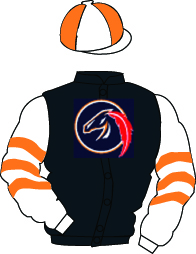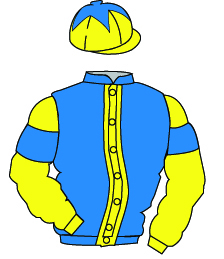Steve Coburn & Perry Martin
/Long-time racing fans Perry Martin and Steve Coburn each owned a five percent share of an $8,000 mare named Love the Chase in a syndicate. When the syndicate dissolved, each wanted to buy the mare himself. Instead, they became partners. Someone suggested a name for their new stable. “A groom walked by and said, `Anybody who buys this horse is a dumb ass,’” Martin told Debbie Arrington in her April 4th, 2014, story in the Sacramento Bee. “Steve and I shook hands; we’re the Dumb Ass Partners.”
Indeed, their California Chrome races in purple and green silks featuring a caricature of a jackass. How dumb are Martin and Coburn? California Chrome was Love the Chase’s first foal. His dominating victories in the Grade 2 San Felipe and the Grade 1 Santa Anita Derby extended his all-stakes winning streak to four heading into the Grade I Kentucky Derby for 77-year-old trainer Art Sherman, who was the exercise rider for 1955 Santa Anita and Kentucky Derby winner Swaps. Like Swaps, California Chrome is a California-bred.
Unlike their trainer, Martin and Coburn don’t have historical ties to racing. Martin and his wife Denise own and operate Martin Testing Laboratories at the former McClellan Air Force Base in Sacramento. Martin Testing Laboratories is a commercial full-service independent lab offering contract research and development, product assurance testing and material assurance testing services.
Coburn works at a factory that makes magnetic strips for credit cards. His wife, Carolyn, recently retired. “We’re just everyday people,” Coburn told Arrington. “I’m up at 4:30 every morning and in bed by 10.” Martin said, “We’ve got two businesses to run; the horse is our third business. But we’re really happy and excited.”
And that was before the Kentucky Derby.
California Chrome was born at Harris Farms in California. “He weighed 137 pounds when he was born,” Coburn said. “That’s big. We nicknamed him Junior. I told my wife when we saw this horse on the day after he was born, `We better hang on for this ride because it’s going to be a good one.’ He had no idea.
















